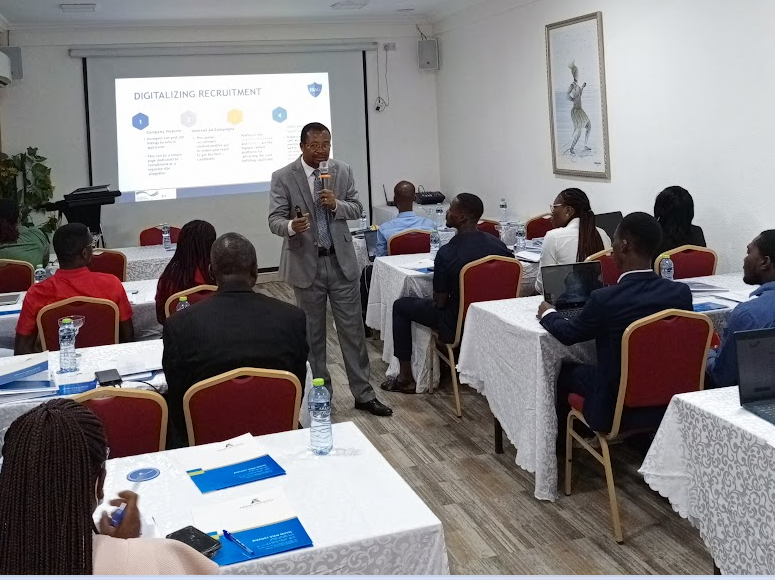
With the advent of disruptive technologies such as artificial intelligence, machine learning, IoT, and robotic process automation, the future of the insurance industry looks bright and promising. However, success for insurers, brokers and agents will largely depend on how quickly they break out of their old ways of doing things and march towards a digital future with fully modernized capabilities.
The insurance industry in Ghana with rising cost of doing business is undergoing a lot of transformation as Ghana’s economy is going through stress. Increase in customer expectations, data, and availability of innovative digital technologies are disrupting the traditional insurance business models. Forward-looking insurers aren’t just observing this major shift, but have started taking actions by investing in technologies, reconsidering their business processes
Digital transformation is indeed the right step forward, but with so much at stake, are you focusing on the right areas? And, are your efforts adequate enough to keep up with the emerging pace of change?
Let’s look at how digital technologies are building the foundation for the future of insurance.
Big Data and Internet of Things (IoT)
Data is the new oil, and with the advent of it, one can get opportunities to use the insights of customer’s life, wealth, and other behavioural patterns in ways that one can never imagined. Although data-intensive, research has shown that insurance industry players has failed to utilize unstructured granular data in the form of text and voice. Building capabilities to collect such granular data, compile it and analyze the data sets can bring unprecedented accuracy in assessing customer’s risk profile and determining tailored priced products.
Example, Utilizing IoT sensor data attached to the car, one can collect critical data about the drivers, such as their driving habits and their likelihood to be involved in an accident. Comparing this behavioural data with that of the other drivers in the database can help to build accurate customer profiles and offer them competitive, yet profit-making premiums.
Data will also give a fair share of advantage to your marketing teams. By analyzing unstructured data through the calls, emails and social media networks, marketing teams will have a better understanding of customer preferences. This vital information will enable them to offer products and services that precisely meet the needs of your customers.
Artificial Intelligence
Unlike today, where AI is simply thought of as a tool to intelligently automate a few business processes such as underwriting, pricing, and claim support, the technology will play an integral role in determining the success of your business in the future.
As AI and ML mature with advances in cognitive technologies, one will have access to Business Intelligence (BI) models that are constantly learning and adapting to the environment around them. This, in turn, will enable you to develop new customer engagement techniques and build new product categories for them with a clear picture of the underlying risks in real-time.
Web API
Application Programming Interface (API) will play a key role for insurers in helping to reach out to newer markets and acquire new customers. With the advent of it, insurers and brokers will gain new capabilities to expand their ecosystem to non-traditional partners and offer real-time insurance services to the customers.
For example, insurers can make their insurance plans available for purchase to customers when they use partner services or products. This new possibility will open new distribution channels outside the insurance industry and will generate additional revenue and new customers.
However, the success with the API economy will lie in strengthening the technical capabilities. Capabilities that allow insurers to expose business assets (such as customer records, products, premium calculations, and so on) and make them easy to understand, leverage and use by partners.
Preparing for the Future
These advances may seem too futuristic but are much closer than we think. This can be sensed by the prevailing trends in the insurance industry. So, how can your business stay relevant today and also in the future?
Digtal Transformation is all about reimagining the insurance from the customer’s perspective. However, digital alone cannot differentiate your business from the rest. To ensure success, it is critical to define the areas where you would want to see improvements, such as better claim processing, superior customer service, competitive premium pricing, etc. and put your efforts in those directions.
blog.adacta-fintech.com
Share On Social Media

Third-party insurance premiums up from January 1; ¢482 for private cars and ¢637 for taxis
Read MoreWhy Buy Insurance ?
There will be no need for insurance if we are living in a perfect world on this planet called EARTH. Our goods would always arrive at their destination
Read MoreEmerging Trends In Ghanaian Insurance Market An Overview
According to a report by a UK based IT Solutions, Ghana has one of the fastest growing insurance industries in the world.
Read MoreTop 10 Insurance Brokers In Ghana
Ghana 2016 68 Insurance brokering companies that operated in Ghana in 2016 earned Income of GHC 73,144,221 in 2016 representing growth rate of 12%.
Read More






















